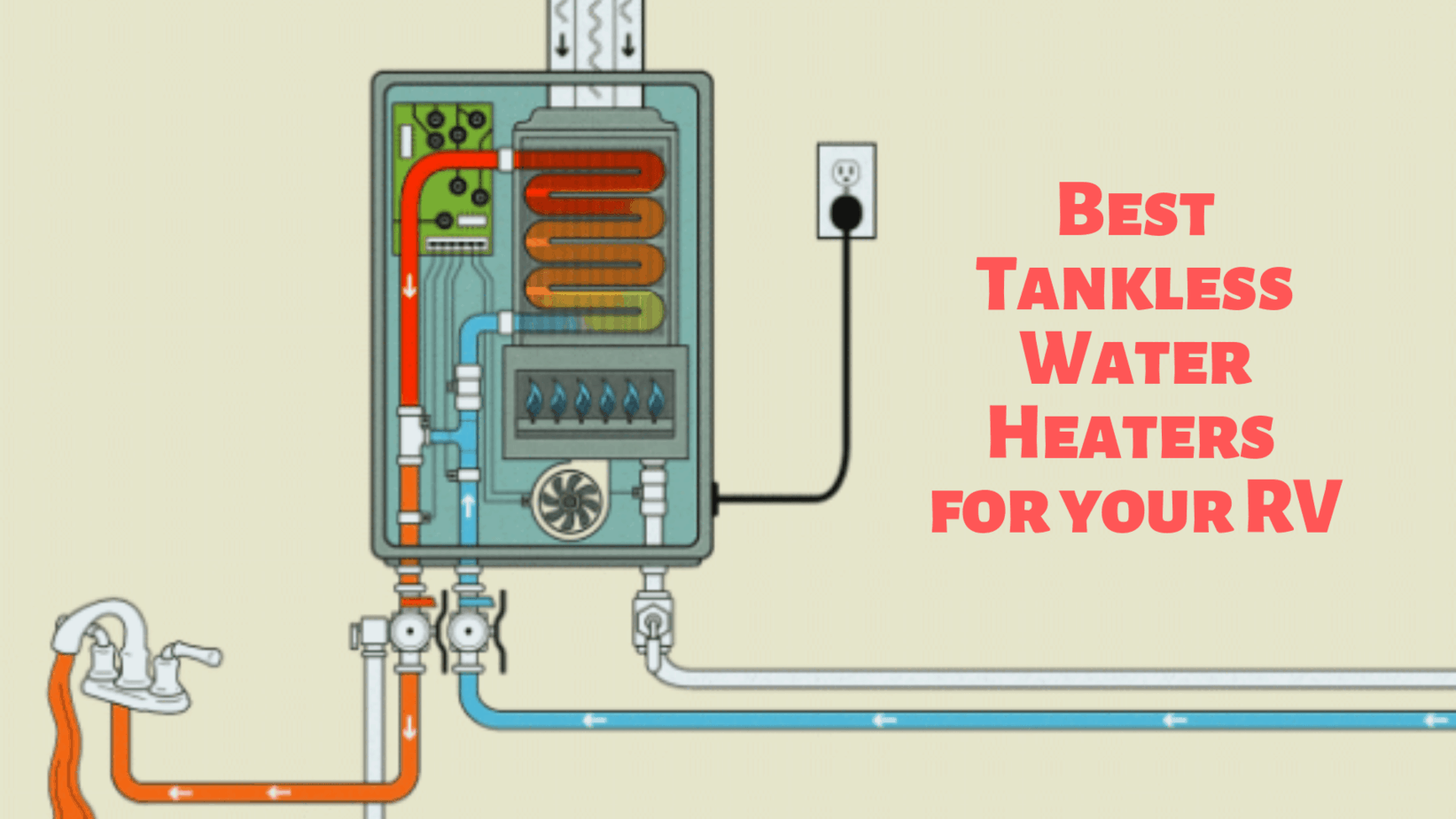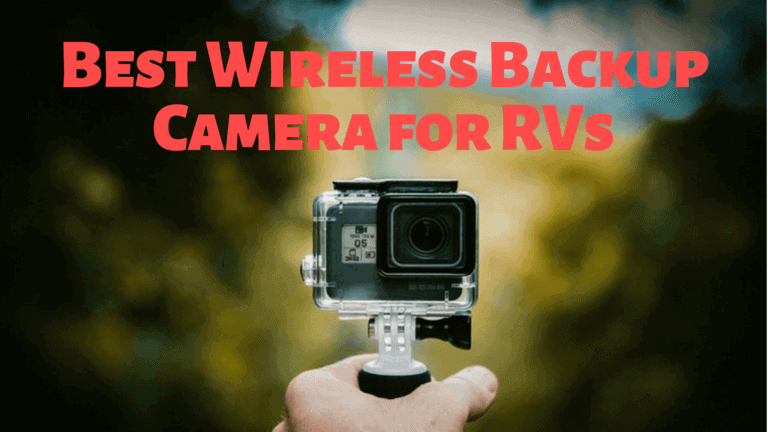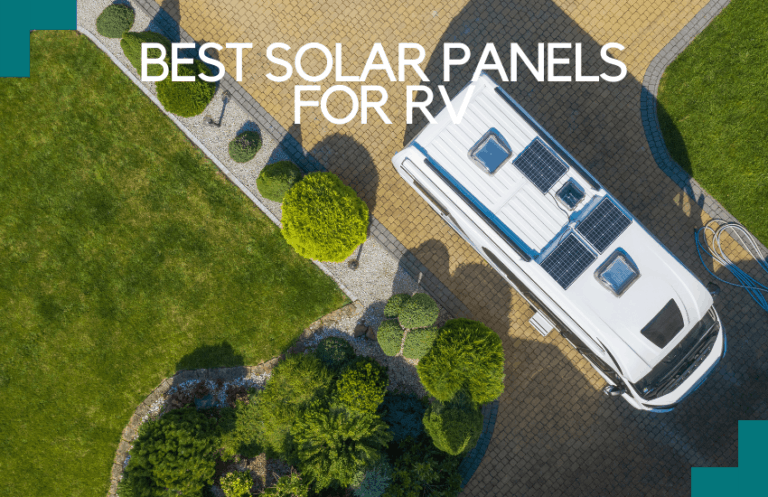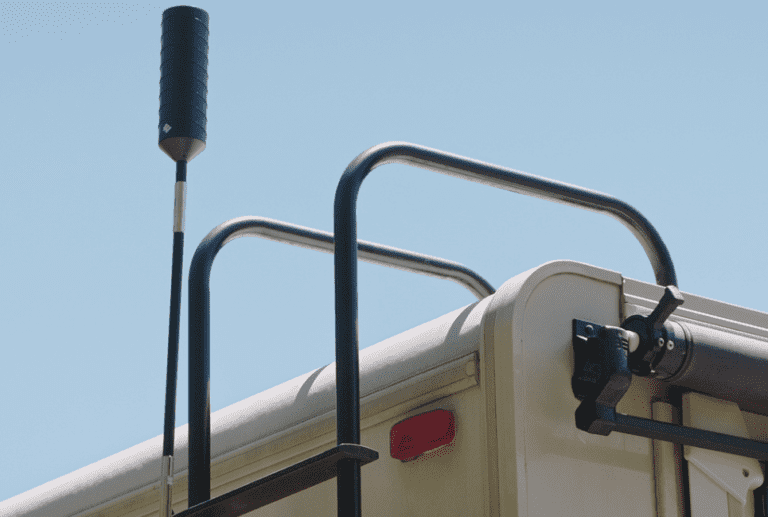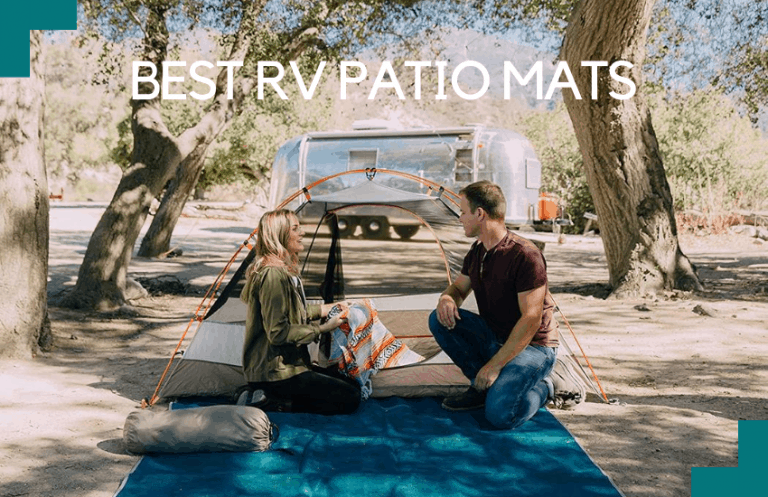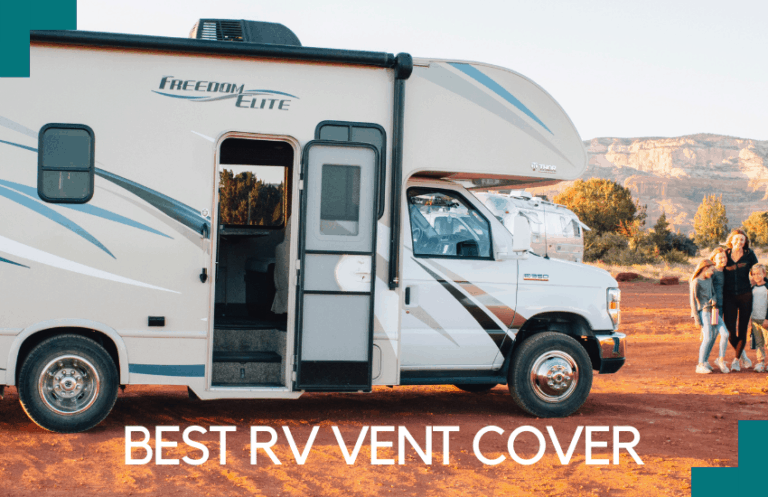The Best Tankless Water Heaters for your RV: Top on the Market!
- Best Bunkhouse Travel Trailer: Top Models & Options! - September 15, 2022
- Best Wheel Bearing Grease for Travel Trailers On The Market - October 28, 2021
- Best RV Jackknife Sofa Cover Ideas That Are Low Maintanance - October 15, 2021
When you think of RVing, many words and images come to mind, but chances are a long, luxurious shower is not one of them. The average RV water heater has a 6-gallon tank. Those 6 gallons are used quickly and then you have to wait as the heater brings a fresh tank of water up to temperature. Whether your RV is your full-time home or a home away from home, there are many reasons to want a better source of hot water. However, you can opt for unlimited on demand by replacing your standard with the .
A tankless water heater is exactly what it sounds like: a water heater that does not have a tank. While there are advantages and disadvantages of choosing a tankless water heater, most RVers find that the benefits far outweigh the drawbacks. The technology is constantly developing, producing ever more efficient units with increasing flow rates and temperature ranges. As the market grows and more and more manufacturers offer tankless RV water heater models, it can be difficult to know which model is right for you. We’re here to help.
My Top Picks
In case you don’t want to wait for the best tankless water heaters recommends, we put them upfront for you:
Reasons to Choose an RV Tankless Water Heater

Continuous access to hot water
The top reason many people consider a tankless water heater is having unlimited, continuous hot water. With a standard water heater, showers should be kept short and still might end with a chilly surprise. If multiple family members need to shower or use hot water for dishes or laundry, they need to wait in between for the water heater to catch up and heat a fresh tank of water. Because a tankless water heater heats the water on demand, you will not run out of hot water unless you run out of water.
Energy efficiency
Another common reason to switch to a tankless water heater is how energy efficient they are. Rather than heating a tank of water and running at regular intervals to keep that water warm and ready for use, a tankless unit heats only what you need when you need it. This environmentally friendly savings of electricity or propane can also significantly reduce costs over time.
Save space, reduce weight
Most standard RV water heaters have a 6-10 gallon tank that is always full of water unless the system has been emptied, such as when a rig is winterized. Since a gallon of water weighs over 8lbs, the water in that tank weighs about 50-80lbs. Add the weight of the steel tank itself and it’s easy to see why a tankless water heater offers a significant weight reduction in most rigs. Tankless heaters are also much smaller, which is an added advantage in an RV where space is at a premium.
Reduce risk
As long as everything is working as it should, a standard water heater poses very little risk. But invariably things go wrong. Since most water heaters are hidden from view, leaks may go undetected for some time. Water can be very destructive in an RV, and 6-10 gallons of hot water on the loose could cause considerable water damage. The tank will continue to fill and heat the water, so the leak will continue until it is discovered. Things can go wrong with a tankless water heater as well, but the risk of water damage is significantly reduced.
Life Expectancy and Maintenance
With proper maintenance, a standard RV water heater has an average lifespan of about 10 years. This maintenance includes regularly emptying and flushing the tank, changing the sacrificial anode rod, and properly winterizing the system in cold weather. A tankless water heater can last up to 18-20 years and they are often more easily repaired than a standard water heater. Winterizing a tankless heater is as simple as emptying the line and switching it off. A tankless model does not need an anode rod and there are no collecting sediments that need to be flushed out.
Factors to Consider
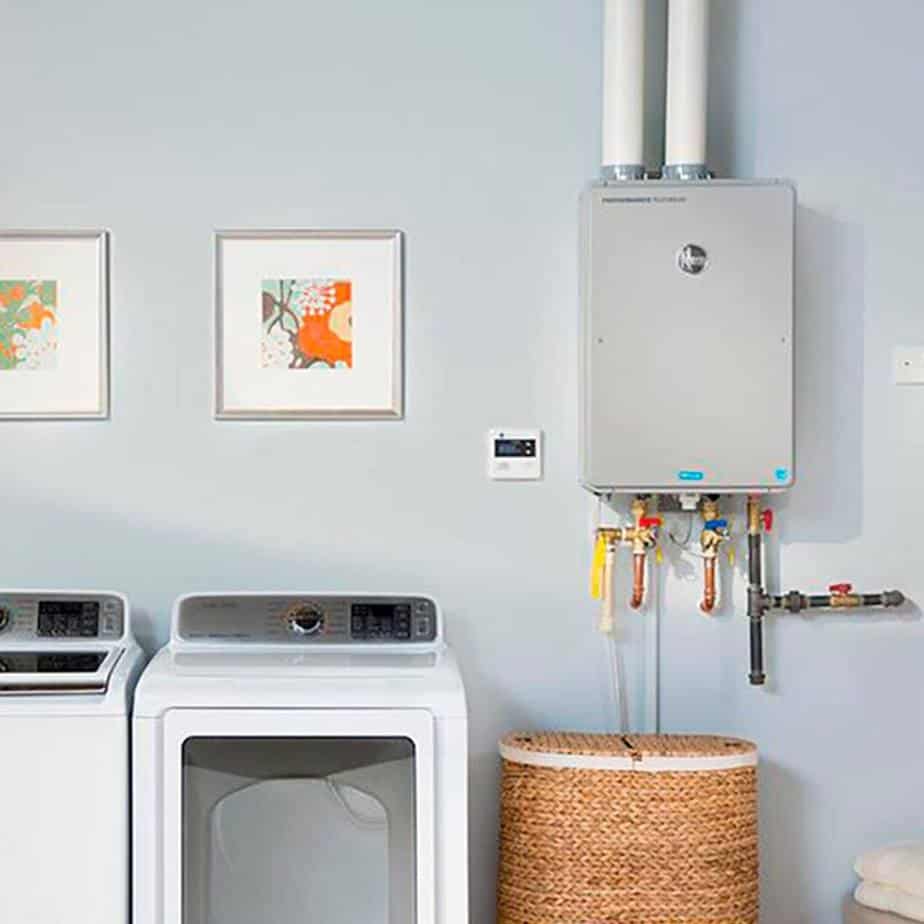
- Propane vs. Electric. While most RVs come with a water heater that can be powered by either propane or electric, most tankless heaters run on one or the other. Propane is by far the most popular choice as they are generally more efficient and enable campers to use hot water even when dry camping. Heating water on demand uses far less propane than a standard water heater, but it is still an expense to refill propane. Electric may be a better option for someone who always has access to shore power, especially when staying in campgrounds without an additional cost for electricity. However, electric models are not capable of producing as much hot water as quickly, so their flow rates tend to be much lower than a similarly sized propane model.
- Flow Rate. The flow rates, or output levels, of tankless water heaters, vary. Flow rate is typically described in terms of gallons per minute (GPM). The flow rate you need depends on how you plan to use hot water in your rig. If you are hoping to be able to use hot water in the shower and the kitchen sink at the same time, you need a much higher flow rate than if you are satisfied with only one task at a time. Many tankless water heaters are unable to be used simultaneously at multiple points, so if this is a priority for you, be sure to check this before buying. An average RV shower head has a flow rate of about 2.0 GPM, so if you are not using hot water at multiple points simultaneously, there is no need to purchase a water heater with a higher flow rate than your fixtures.
- Installation. Many manufacturers require professional installation of the tankless water heater as a condition of the warranty. This can add to the cost of transitioning to a tankless heater. When choosing a model, be sure to consider the cost of installation and any adaptations that will be needed in order to install it properly. A propane heater will need to be properly ventilated for safety, while ventilation is less important on an electric model. Measure the size of the existing water heater hole in all dimensions and compare to the size of the new heater. While tankless water heaters take up less space overall, if you choose one that is bigger than your existing hole in any direction, you will need to make potentially costly changes to your rig in order to accommodate the new heater.
- Ignition source. Most tankless water heaters function similarly in that they don’t have a pilot light and have an automatic ignition triggered by the flow of water. Essentially, this means that the heater turns on automatically when it senses the hot water system is in use. They operate on direct spark ignition, but the source of this spark can vary. Many tankless heaters that are installed in an RV will be connected to the 12V power system and generate a spark from the rig’s battery. Other tankless heaters are designed to be portable. While they can be installed in an RV, they can also be self-contained and used for tent camping and other outdoor recreation. These portable units generate a spark using a D-cell battery, which needs to be replaced occasionally. Consider which you prefer and pay attention to the ignition source when choosing a model.
- Incoming water pressure. The flow of incoming water is what triggers the water heater to engage and start heating the water. Different heaters have different levels of sensitivity for how much water pressure is needed to start the heating process. As you travel with your RV, you will encounter varying water pressure in the city water connection in different campgrounds. Filling and using the RV’s fresh water tank is always an option for consistent pressure, but if you’d like to avoid this inconvenience, be sure to choose a model with a low requirement for incoming water pressure.
- Temperature. Different models offer different temperature setting ranges. For example, some might have a maximum temperature setting of 115 degrees Fahrenheit, while others can heat the water up to 145 degrees Fahrenheit. Since most people enjoy a shower temperature between 104 and 106 degrees, this might not seem like an important factor to consider. However, included in temperature capacity is not only the maximum temperature setting but also the temperature increase that the unit is capable of. For summer camping, when the incoming water is likely to be 50 degrees or warmer, raising the temperature 60 degrees is sufficient. For use in colder weather, that same 60-degree increase might leave you feeling chilled. Pay attention not only to the temperature ranges but also the strength of the heater to bring colder groundwater up to a comfortable temperature. This strength or power is measured in BTUs (British Thermal Unit).
- Winter use. If you never plan to use your water heater in cold weather conditions, and it will always be winterized and stored during the winter months, then these factors are of less importance. But since many parts of the country can still anticipate dips below freezing in the spring and fall, many RVers will occasionally face cold weather. Therefore it is important to consider what – if any – special features your tankless water heater has for lower temperatures. Propane units outperform electric ones in raising the temperature of cold groundwater. You should also look for a unit that can be adjusted for lower temperatures, or one with an auto-adjust feature. Many tankless heaters can be set on “Winter Use Mode” which causes the unit to switch on at regular intervals to keep itself from freezing. It should be noted that this mode protects only the heating unit itself and not the plumbing system of the RV.
Features to Look for

Once you’ve decided which factors are priorities for you in choosing your new tankless water heater, consider some additional features that might help you choose between two similar models. While these features do not affect the function of your water heater, they might help you to enjoy using it more.
- User-friendly display. How easy is it to adjust the temperature settings and water flow levels? Is it difficult to activate the winter-use mode?
- Frequency of adjustments needed. Some heaters will make many adjustments automatically, while some require more frequent manual adjustments. Consider where your heater will be installed and how difficult it will be to access it. While the adjustment may seem to be a simple push of the button, how much work will it take to gain access to the button? Is it important to you for certain adjustments to happen automatically?
- Lightweight. Some units are designed to be handheld and portable. Others weigh nearly as much as a standard water heater with a full tank. Do not assume that all tankless water heaters will be lightweight.
- Quiet motor. Some tankless water heaters run more loudly than others. Since they only run while in use, many people do not consider this an issue. It may be a higher priority for those who often shower or wash dishes while family members are sleeping or those who are generally more sensitive to sound.
- Energy Star rating. Tankless water heaters are always more efficient than a standard water heater that constantly heats a tank full of water. However, there is also a scale of efficiency among the tankless models, so watch for the Energy Star rating.
- Warranty. Be sure to ask how long the warranty lasts and what it covers. It is common for the heat exchanger to be covered for longer than the other parts. Also beware any activity that would void the warranty, such as installing or repairing it yourself. Many require professional installation and some even require that the technician be licensed or certified by their company.
Recommended Models
|
Model |
Type |
Flow rate |
Price Range |
|
Propane |
2.6 GPM |
$175-250 |
|
|
Propane |
1.5 GPM |
$1100-1200 |
|
|
Camplux 5L or |
Propane |
1.3 GPM 2.6 GPM |
$100-150 $200-250 |
|
Propane |
1.4 GPM |
$450-$500 |
|
|
Propane |
1.6 GPM |
$200-250 |
|
|
Propane |
3.1 GPM |
$200-250 |
|
|
Electric |
0.5 GPM |
$300-350 |
Eccotemp L10

- Special Features: This unit is portable thanks to its 2 D-cell batteries as an ignition source, but it can also be permanently installed outdoors. It offers a low-pressure activation of 20PSI and a high output of 2.6GPM.
- Drawbacks: This unit is not ideal for winter use and can be prone to freezing. Some users find it difficult to find the right temperature setting.
- Choose this model if… you don’t spend much time in cold temperatures and want a portable unit with high output.
Precision Temp RV 550
- Special Features: This unit was designed specifically for RV use and is easy to install since the exhaust vent is built in to the wall panel. It is sturdy, durable, and efficient. It adjusts automatically adjust propane use based on water temperature and flow. This is a 4-season model that comes with freeze protection.
- Drawbacks: It is one of the heaviest units available, and also one of the most expensive.
- Choose this model if… you have the budget for a high-end water heater with a lot of great features and you are not concerned about weight.
Camplux 5L or Camplux 10L
- Special Features: This unit is designed to be portable, and even comes with its own showerhead for use outdoors. Camplux offers these two sizes and several others, with the main difference being output volume. It requires very low activation pressure – 2.5PSI – and offers good output for little propane use. It is a 4-season model with freeze protection.
- Drawbacks: Cannot be used for drinking water! Some users find it difficult to regulate the temperature well. The included showerhead is of lower quality and the hose is too short, especially for tall people to have a good shower.
- Choose this model if… you only plan to use hot water for washing purposes, not drinking or cooking.
Girard 2GWHAM
- Special Features: Girard is number one in this market for a reason. These units are specifically designed for RVs with a hinged door for easy access. This unit is one of the quietest on the market. It offers a burner regulator to help maintain preset water temperature. It is also good for winter use.
- Drawbacks: This unit is a little more expensive than units that offer similar or higher output. Minimum activation pressure required is not clearly defined.
- Choose this model if… you want the peace of mind of a solid, reputable brand combined with great features – and you’re willing to pay a little extra for it.
Excel

- Special Features: This unit offers unique, vent-free technology, which makes proper installation very easy. It requires a very low 2PSI activation pressure.
- Drawbacks: It works best with water incoming above 50 degrees Fahrenheit and it is not well-suited for winter use. It does not offer high output flow and cannot be used at multiple points simultaneously.
- Choose this model if… you stick to warmer climates and easy installation is a priority for you.
Marey Gas 10L
- Special Features: This unit offers the highest output currently available in a tankless water heater for an RV. It requires no electrical hookups because its ignition source is 2 D-cell batteries. This is an inexpensive model for this much performance.
- Drawbacks: Some users had difficulty adjusting the temperature and output to find a good balance. This also may affect how much pressure is required for activation. No automatic shut-off feature could be a safety hazard and is a should-have safety feature.
- Choose this model if… you need a high output water heater on a budget.
Eemax EX3012M
- Special Features: This rare electric unit offers easy installation as no temperature and pressure relief valve is needed. Eemax has three different power ratings available in the RV/marine line, so you can choose the one that best suits your needs.
- Drawbacks: Electric models are not able to produce as much of a temperature increase nor as high of an output flow as propane models. This unit costs more than most propane-fueled heaters but is much less powerful.
- Choose this model if… you are committed to using an electric tankless water heater in your RV.
Frequently Asked Questions
Question: Is buying the best tankless water heater worth the cost?
Answer: Yes. Having endless hot water will change your RV life experience.
Question: Are there affordable for your RV?
Answer: Getting a tankless RV hot water heater for your RV isn’t as expensive as it used to be. Look around to find a good deal.
Question: Does a really instantly and give you ?
Answer: Your hot water gets to you pretty quickly, so you don’t have to worry about cold water blasts and you can enjoy a nice often.
Further reading:

